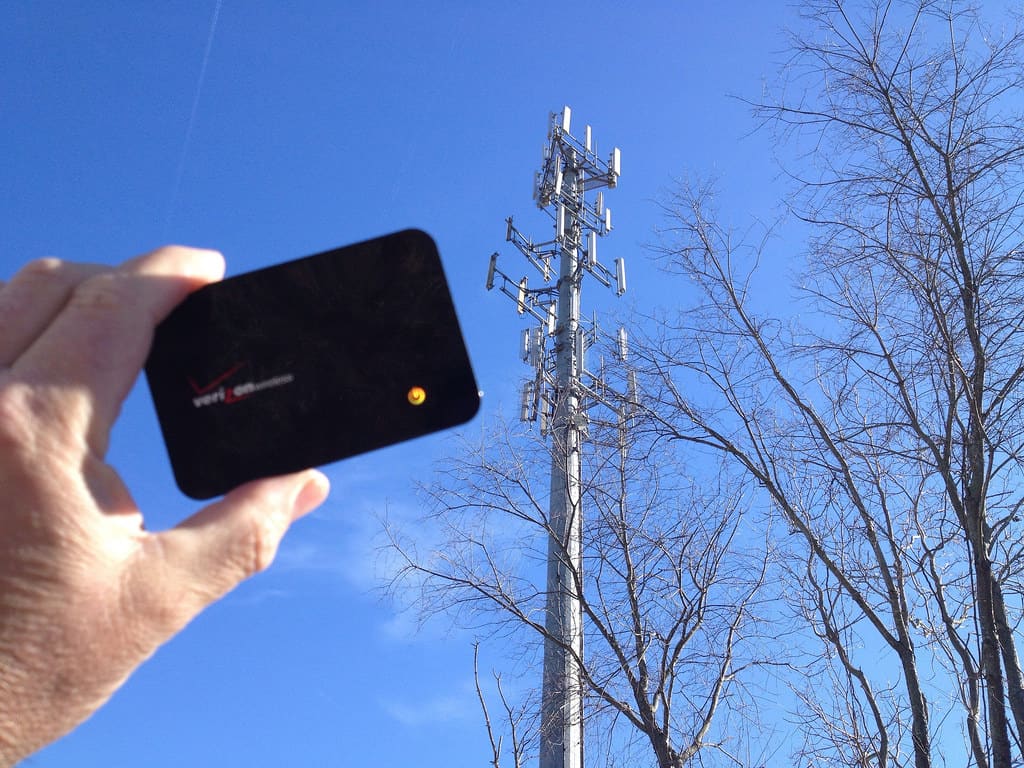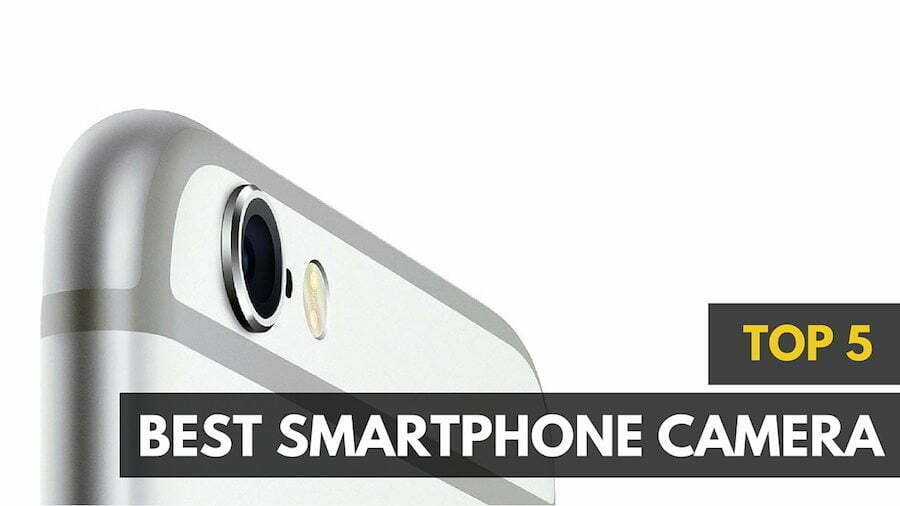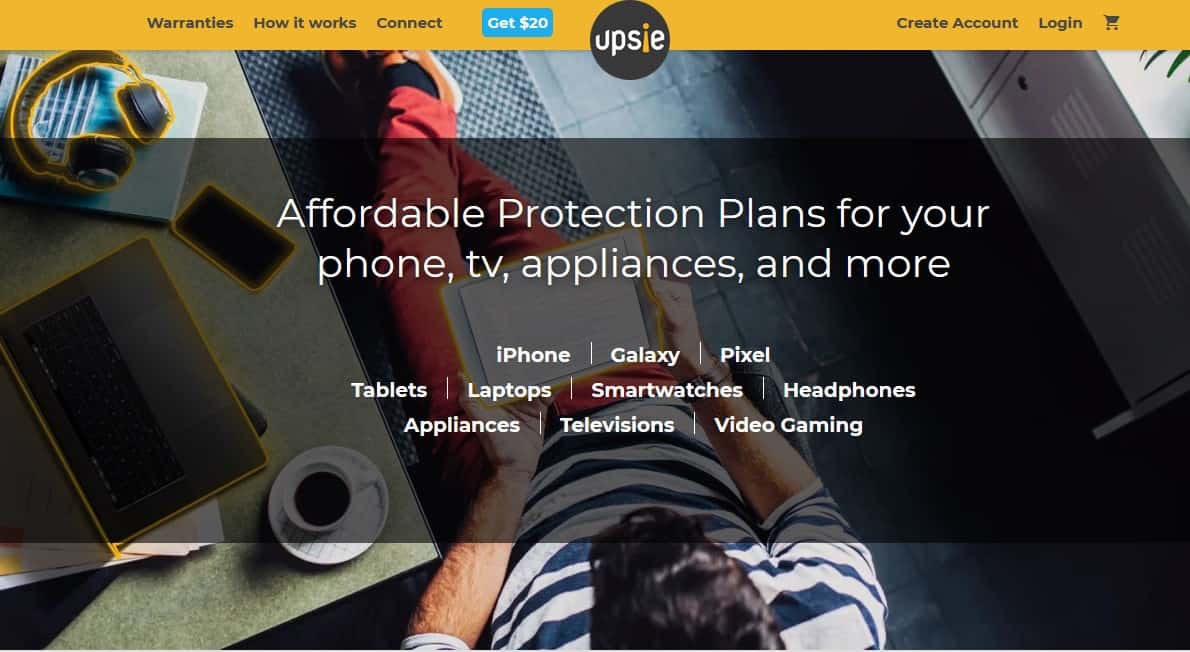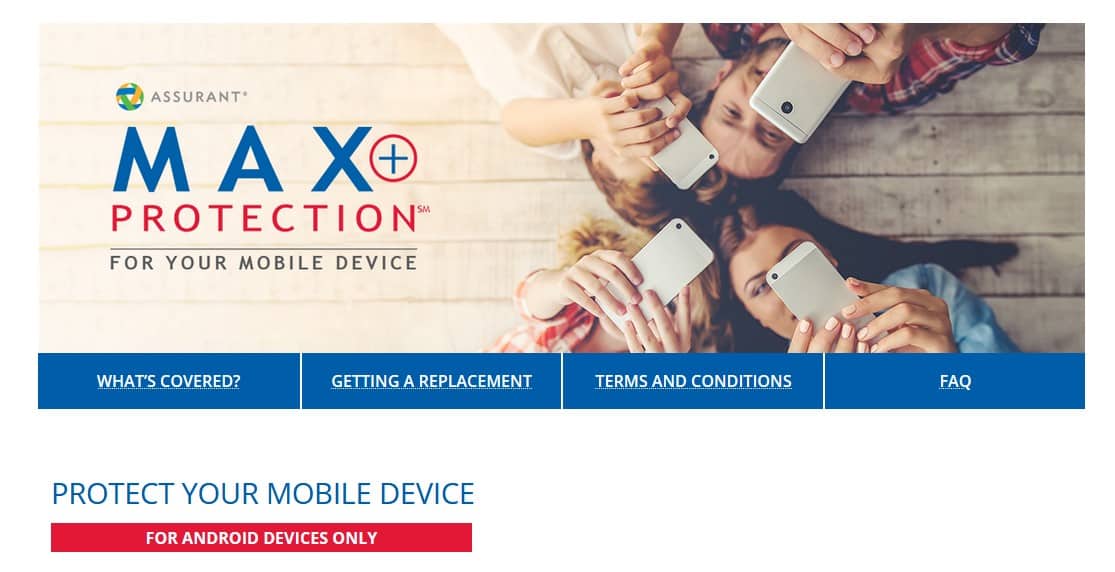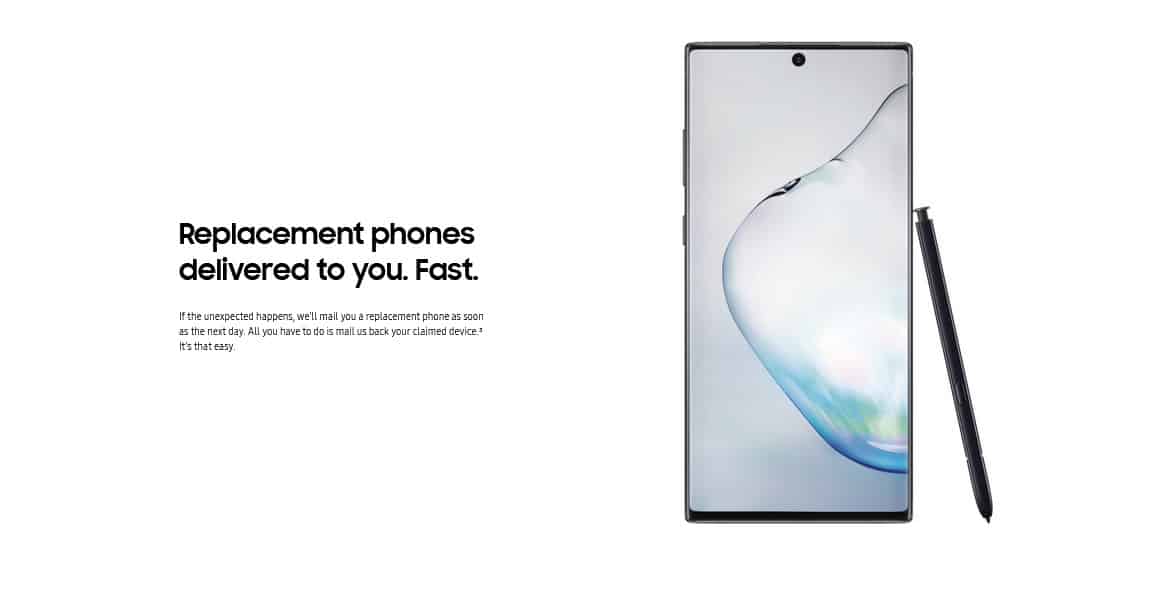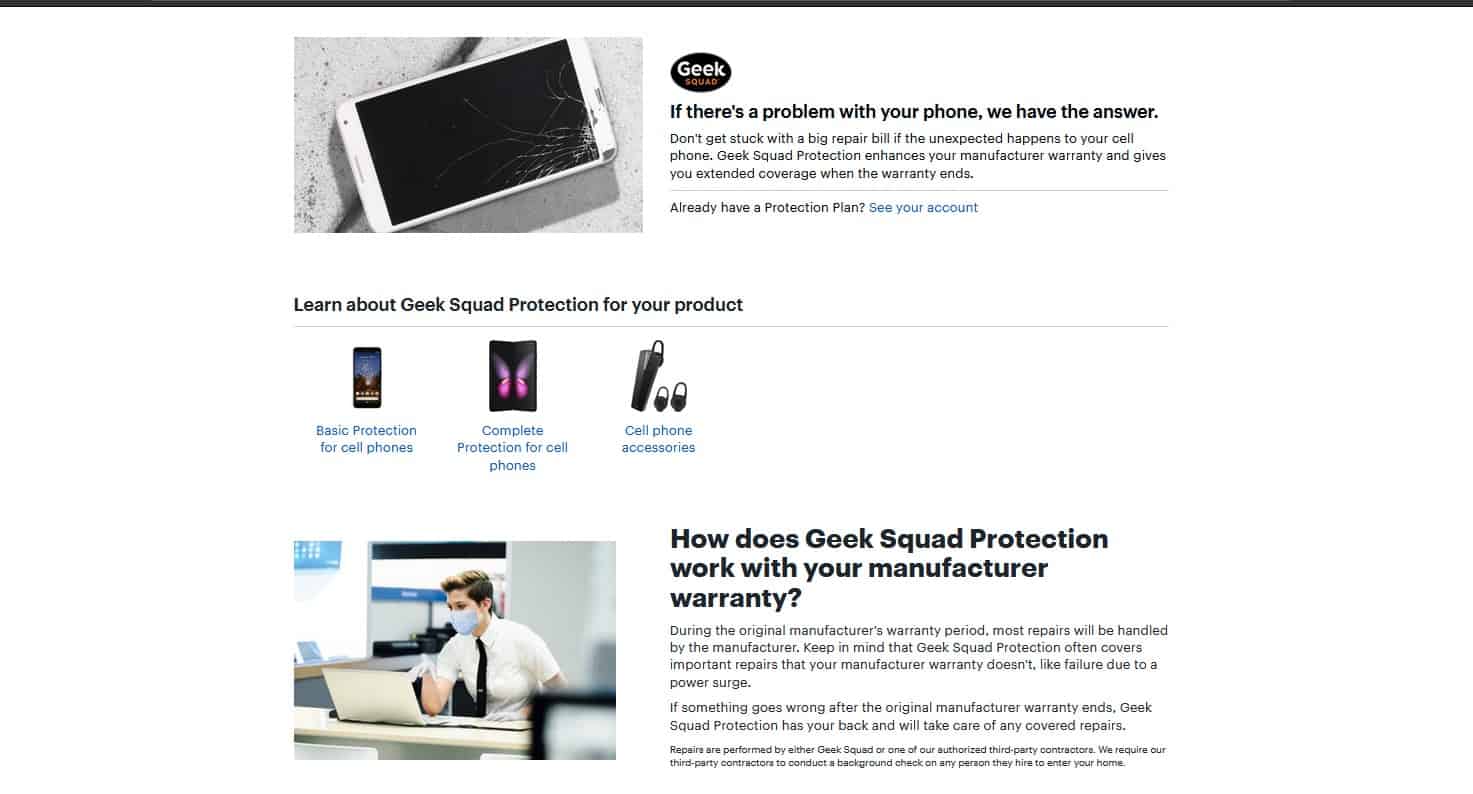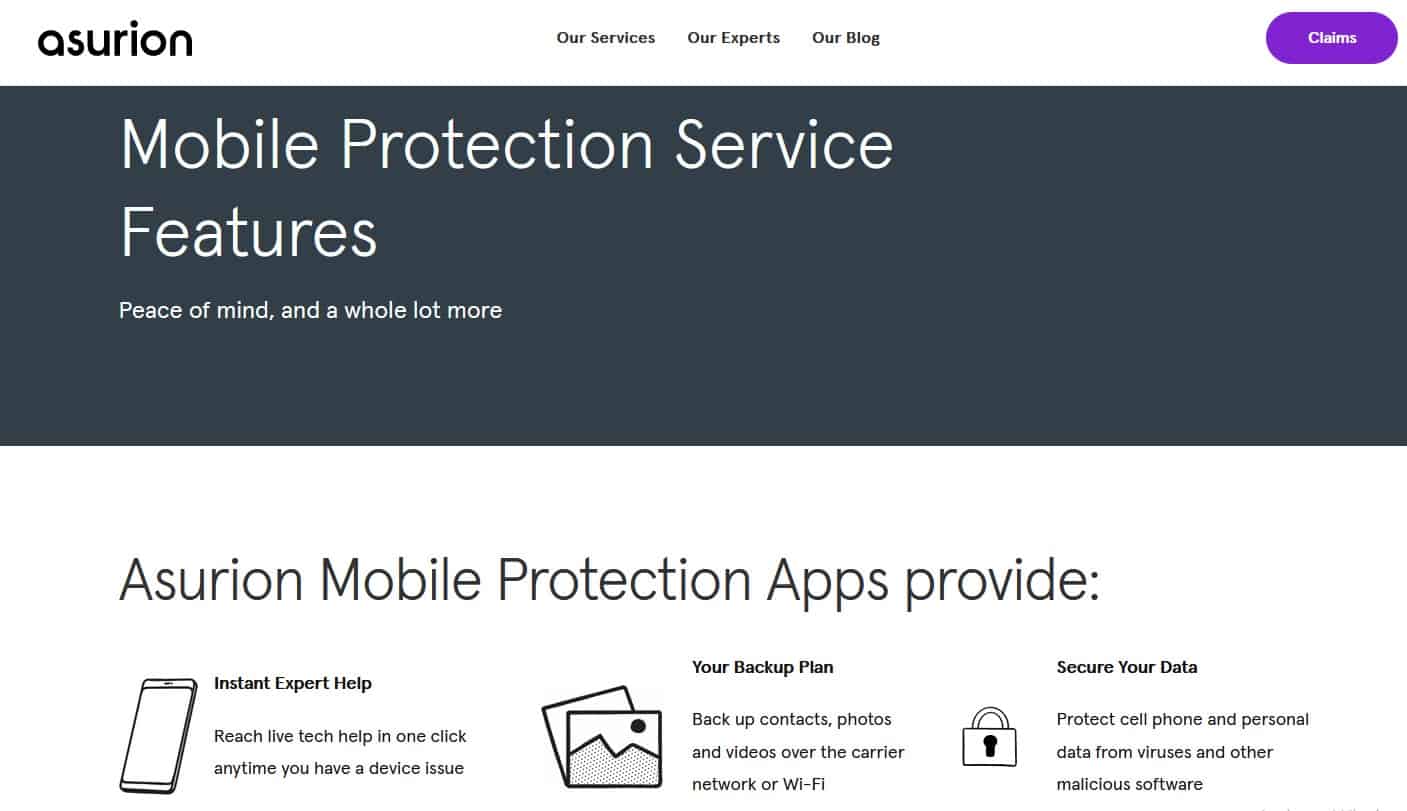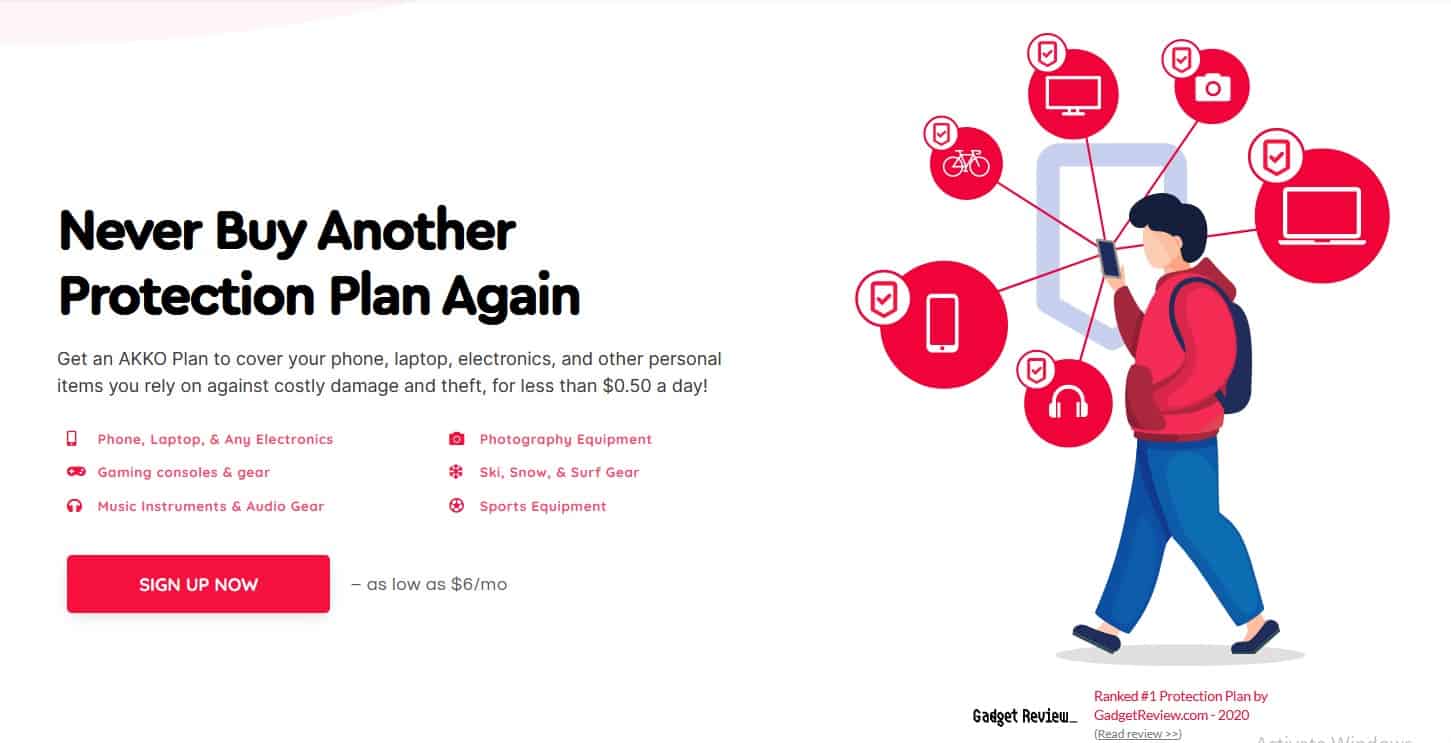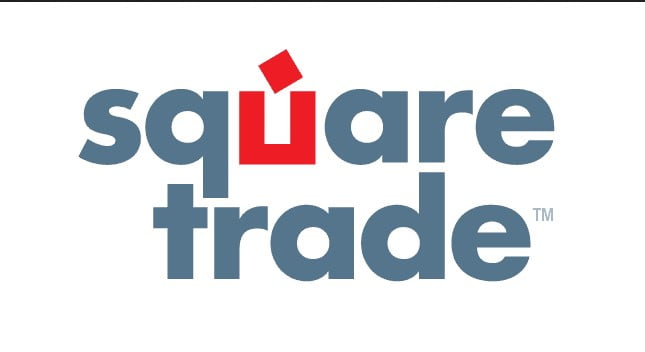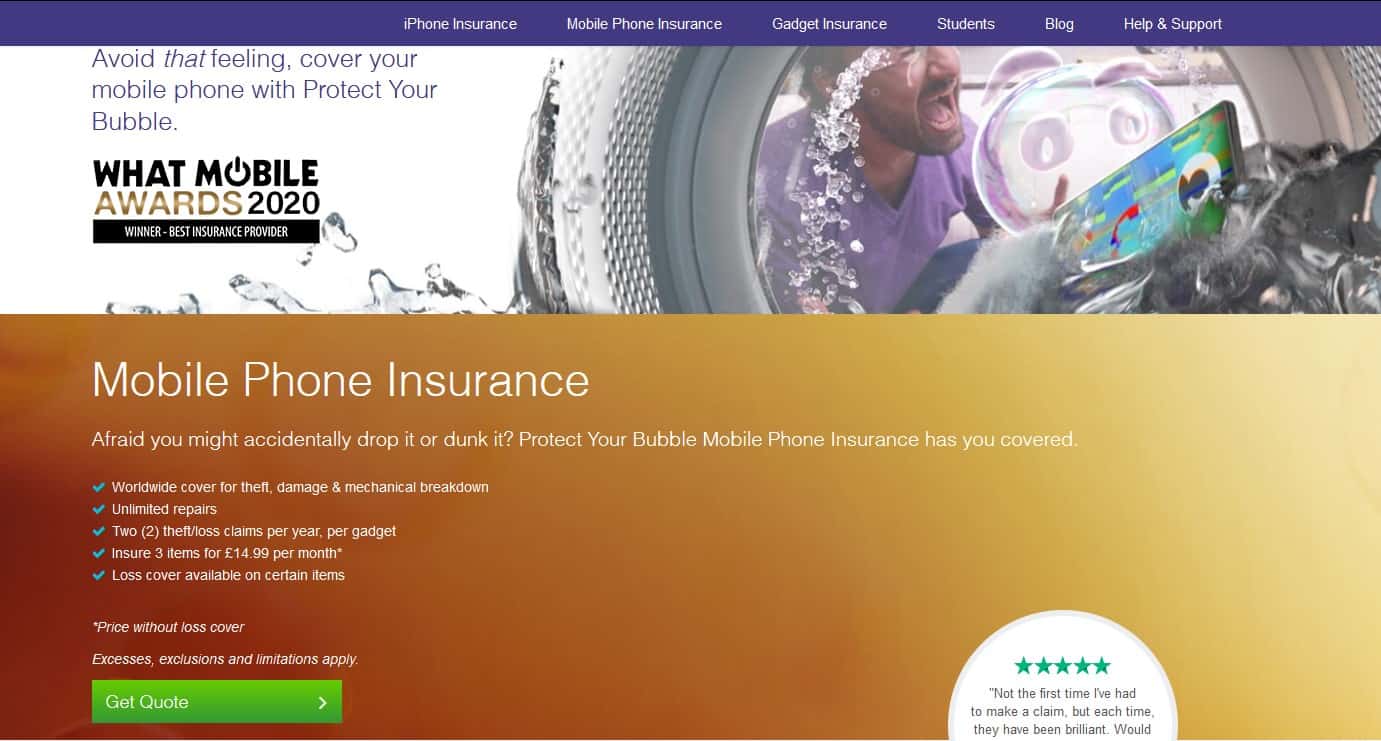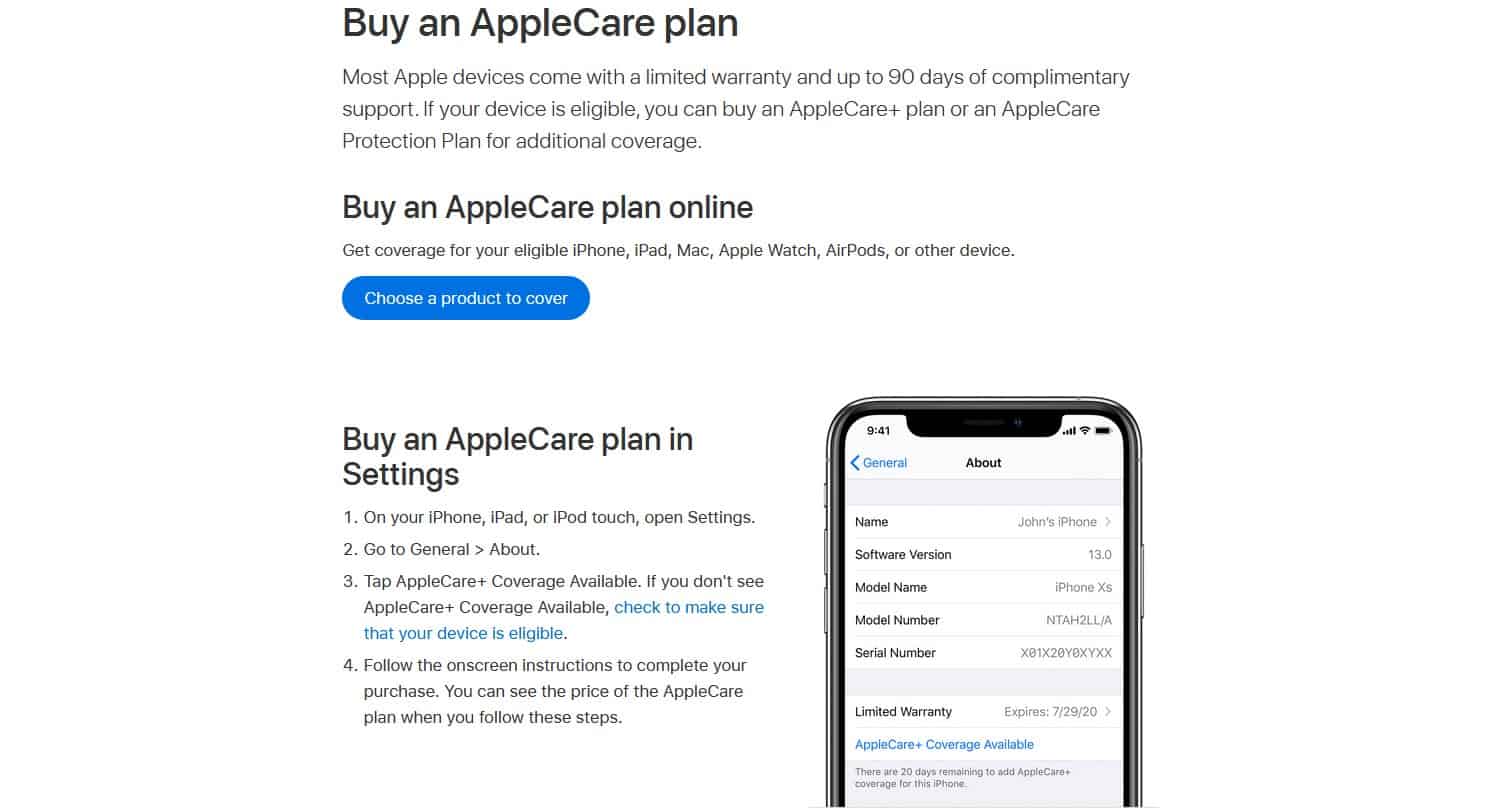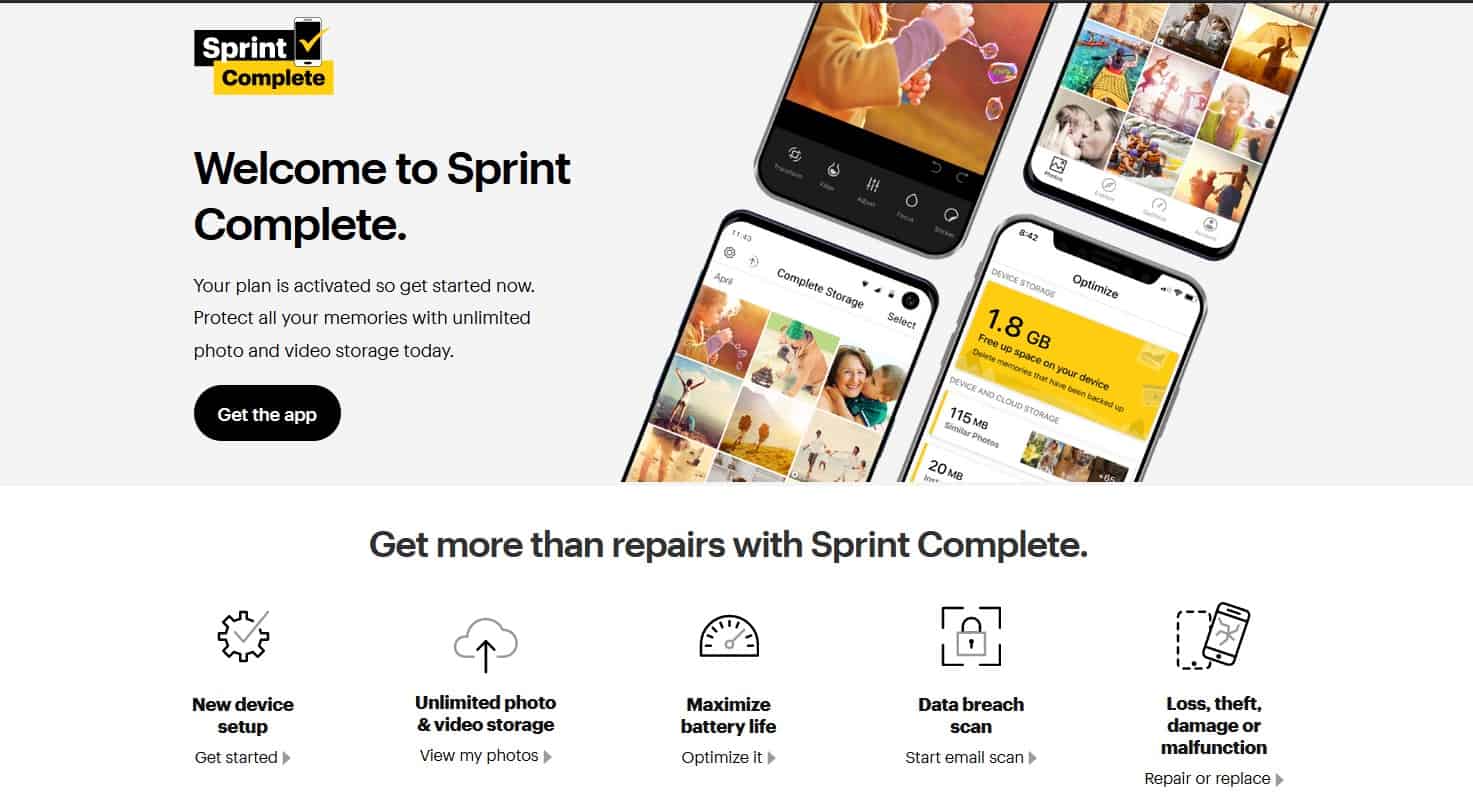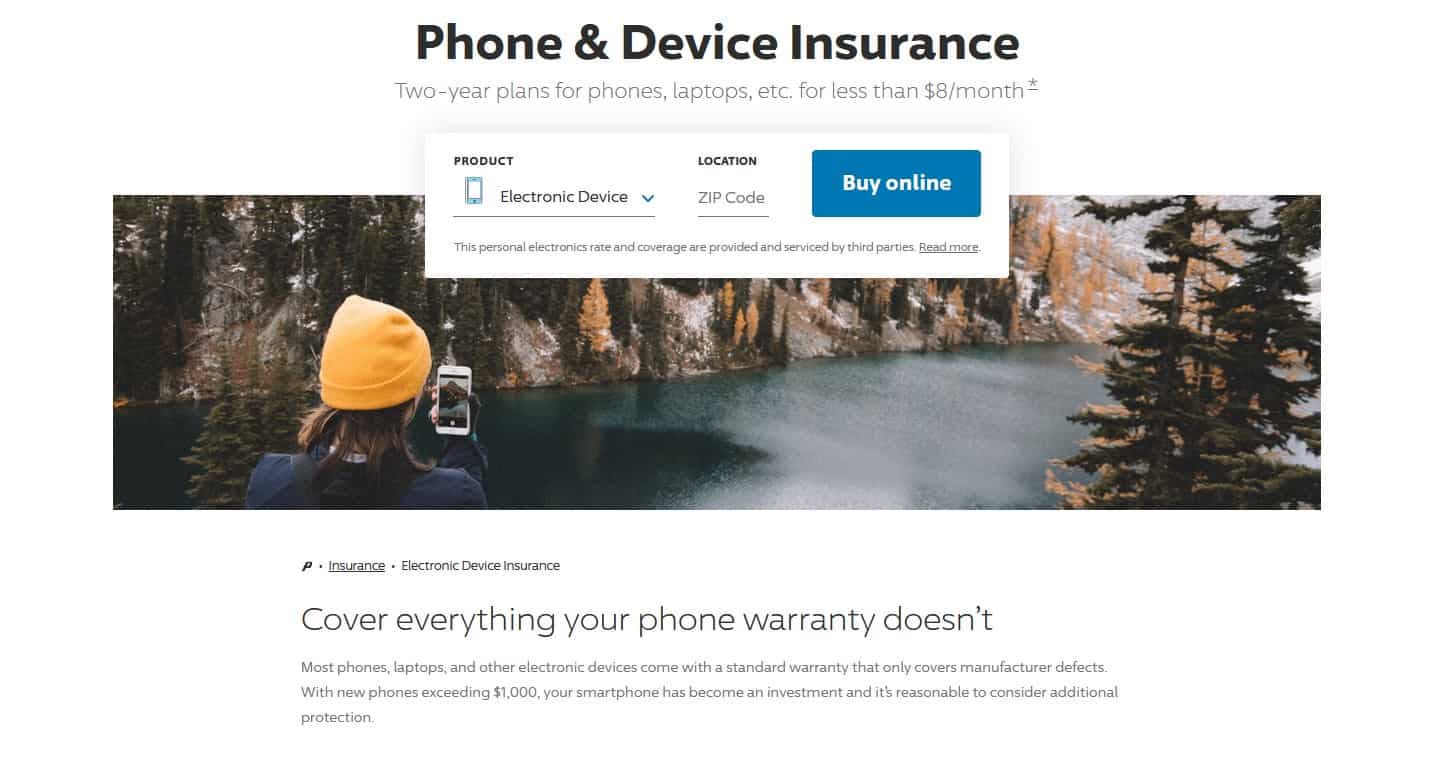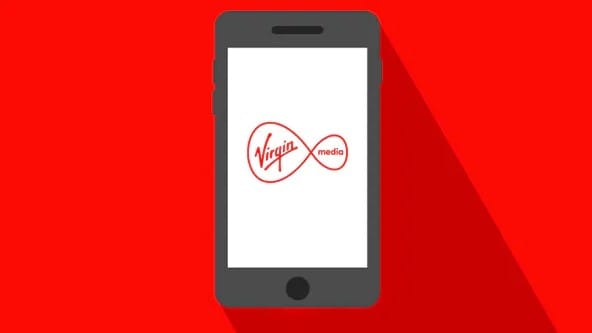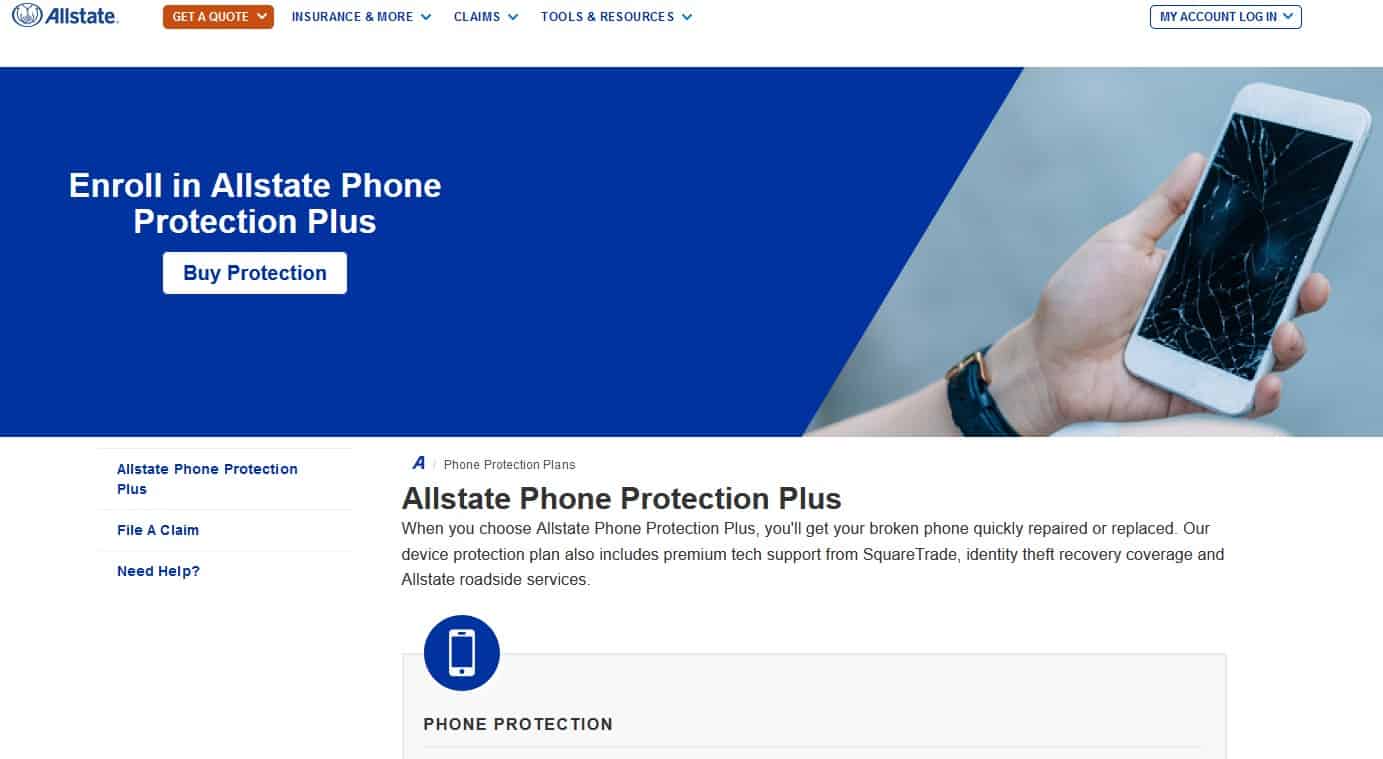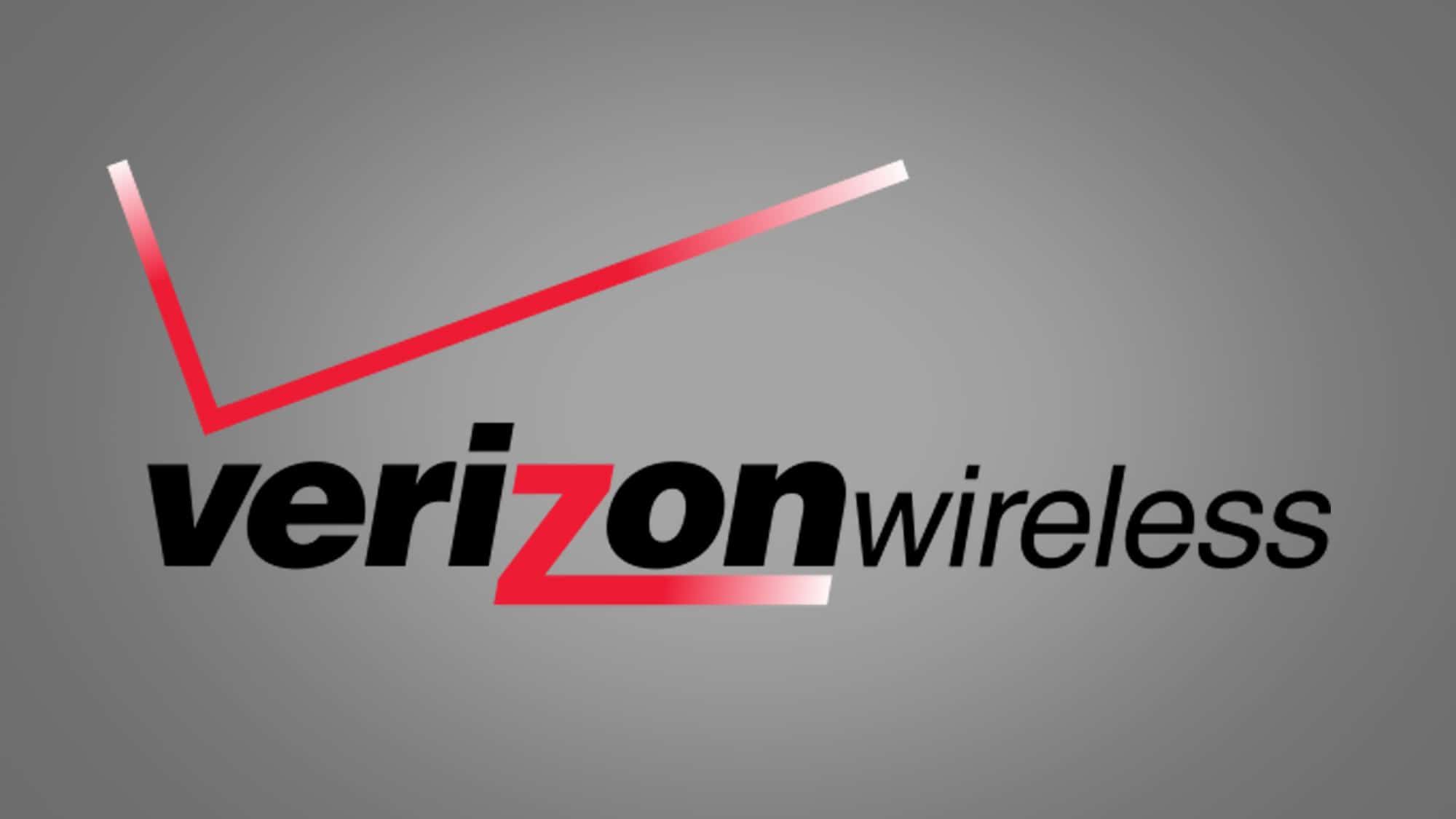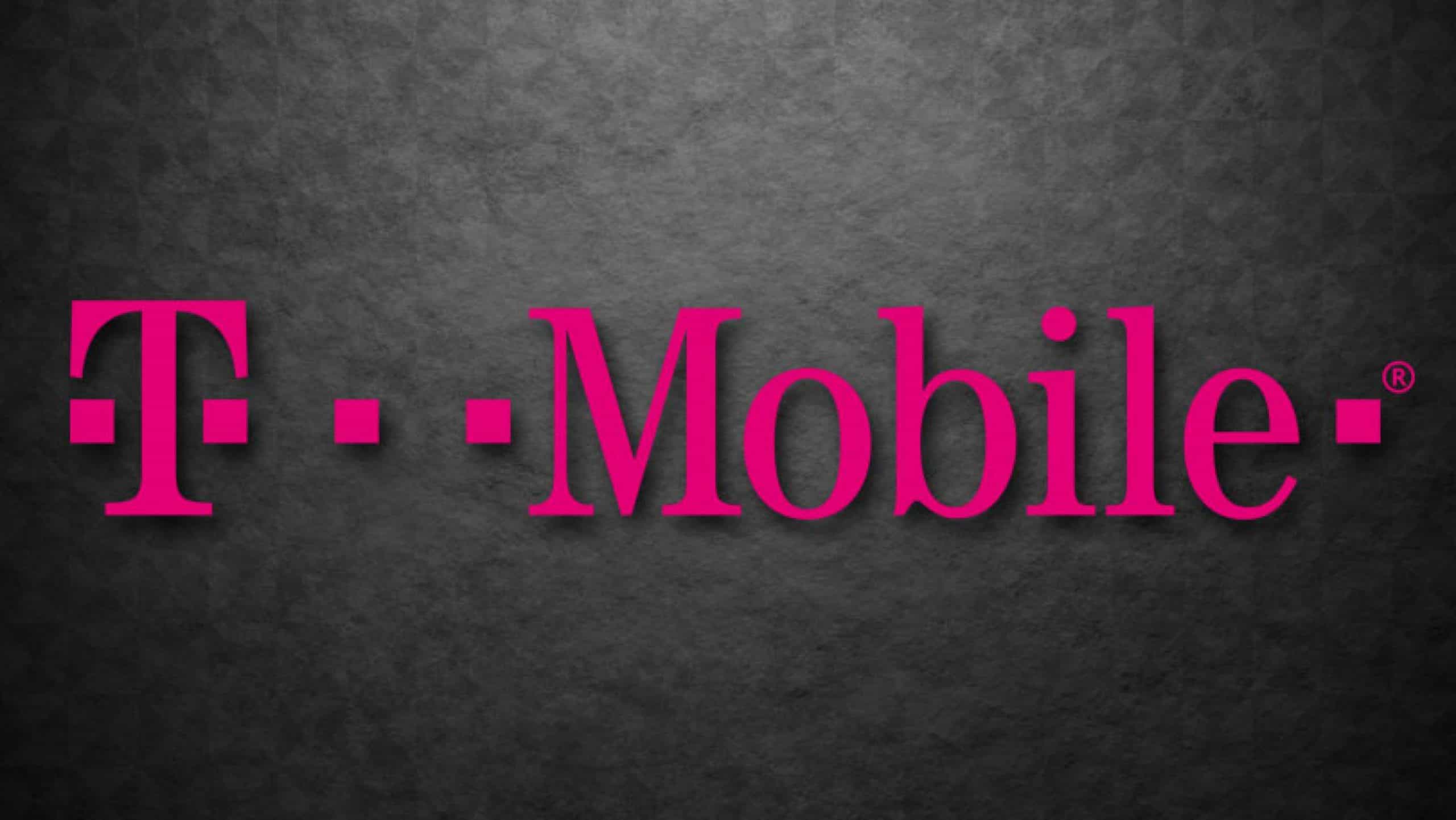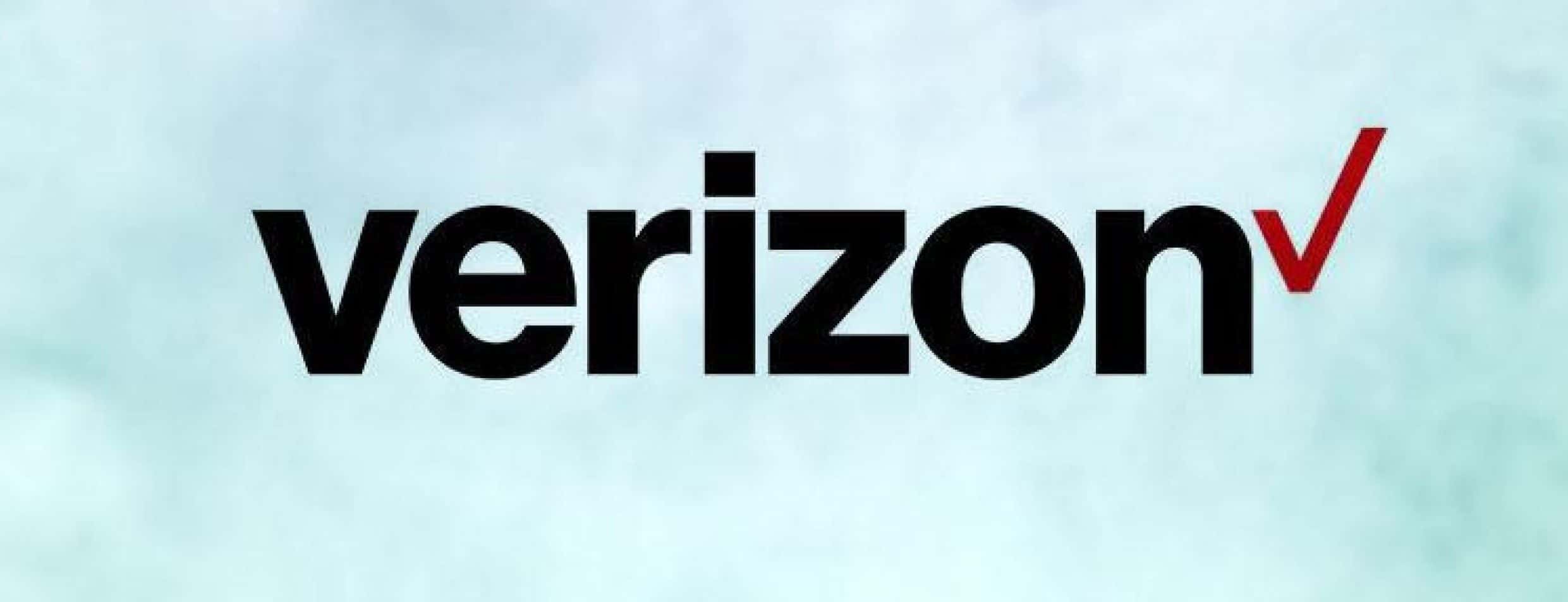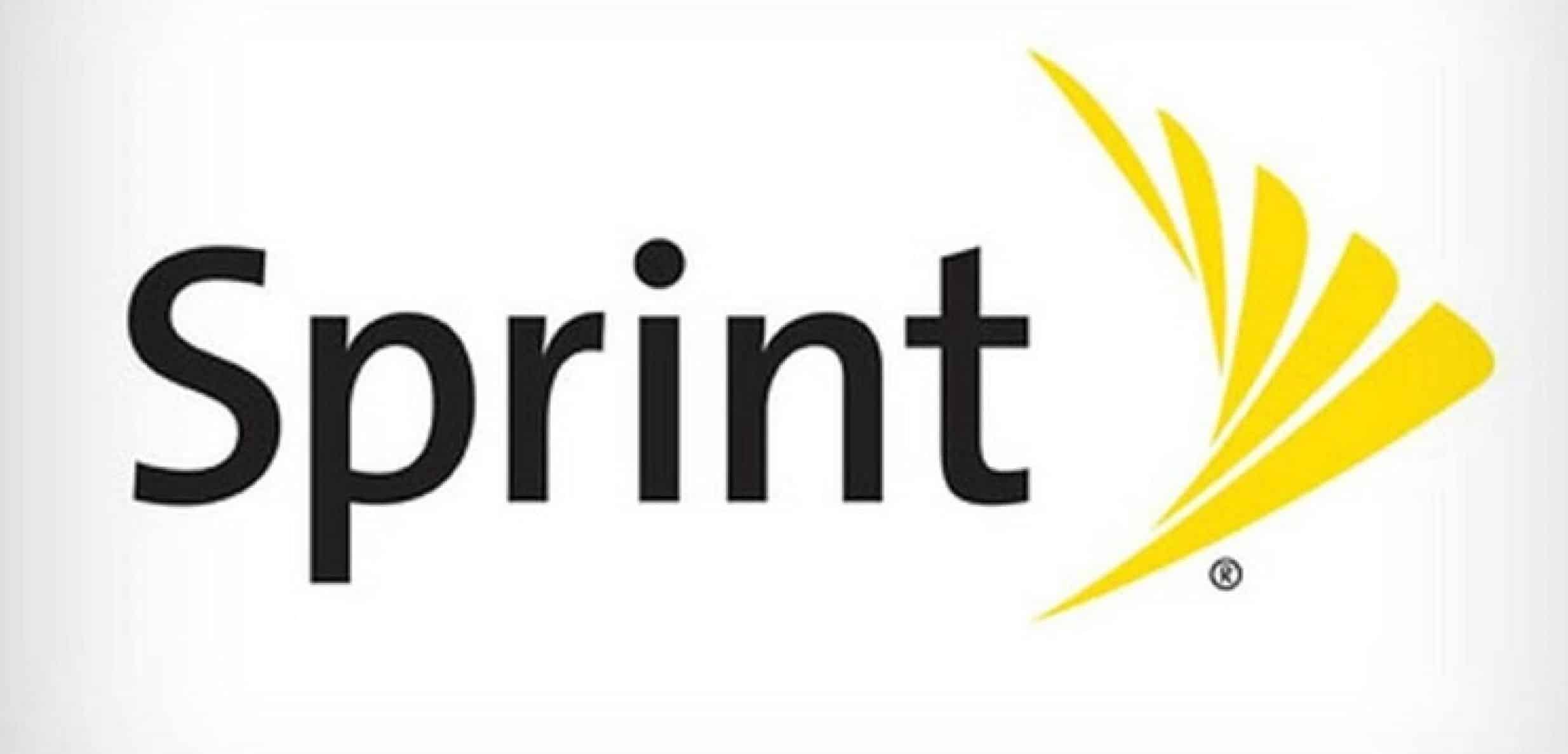Let’s look at these best cell phone plans and compare them.
Both Verizon (the largest wireless provider in the U.S.) and AT&T (the second-largest wireless provider in the U.S.), offer “shared plans.” Meaning, you can share your voice minutes, texting, and data across multiple devices. The plans are sometimes a more economical alternative for small businesses, families, and other groups who want to “pool” usage and receive billing under one account. Shared plans can be tricky though to calculate, because instead of figuring out how much data you use on your own device, you have to calculate all the devices together to reach a shared total. Luckily, both wireless companies provide calculator tools to figure out how much data you may need. But it’s not uncommon for users to go over their estimated usage; and, for overage fees to be a major source of frustration with your wireless provider. Overages are just one of the associated fees we’ll look at in this comparison. It was a close race, but a winner was determined. So let’s get started and see how each provider’s plans compare, to determine who gives you the best rates and services. For smartphone insurance plans, check out Protect Your Bubble.
Unlimited Talk
Both AT&T and Verizon offer unlimited domestic (nationwide) talk service on smartphone, Quick Messaging Phones (QMPs), and basic phones. With shared plans from both AT&T and Verizon you don’t receive domestic roaming or long-distance charges, and, you get calling features such as voice mail, caller id, caller waiting, 3-way calling, call forwarding, and no answer/busy transfer. For your iPhone security, read our review on 8 tips to make your iPhone 5s more secure.
Winner: Tie
Unlimited Text
With both AT&T’s Mobile Share and Verizon’s Share Everything plans you can send as many texts, pictures and video messages as you want with no monthly limits or overage fees. The plan covers all devices on your account, whether smartphone, tablet, or other device.
Winner: Tie
Shared Devices
AT&T lets you share up to 10 devices, including smartphones, tablets, gaming devices, laptops, and netbooks and other connected devices on the Mobile Share plan. AT&T’s business shared plans will allow up to 25 devices per account.
Verizon also lets you share up to 10 devices on your plan’s shareable data pool. And,, like AT&T, business plans will allow up to 25 devices to share in the data pool.
Winner: Tie
Types of Devices
AT&T’s phone, texting and data plans plan includes devices such as smartphones, tablets, basic & messaging phones, laptops, LaptopConnect, Mobile Hotspot devices, netbooks, gaming devices, wireless home phones and other connected devices.
Verizon’s plans include smartphones, tablets, basic & messaging phones, Verizon Jetpacks, gaming devices, USB modems, HomeFusion Broadband, 4G LTE Router, and other connected devices.
Winner: Tie
Phone, Texting & Data Plans
AT&T’s Mobile Share with Unlimited Talk & Text plan gives you unlimited domestic talk, text & picture messaging for your phones, and sharable data with whatever plan you choose. Mobile Share plans also include mobile hotspot and tethering capability on supporting devices. An example of a 4GB plan with AT&T would be 2 smartphones ($40 per mo. each), 1 tablet ($10 per mo.), 4GB shareable data ($70 per mo.), and Mobile Hotspot device ($20 per mo.), totaling $180 per month.
Verizon’s single or multiple device plan combines unlimited national talk, unlimited text, and shareable data for all devices on your account. Customers can connect up to 10 total devices, and small businesses can connect up to 25. Mobile Wi-Fi devices can also be used as hotspots at no additional cost. An example of a 4GB Share Everything plan would include 2 smartphones ($40 per mo. each), 1 tablet ($10 per mo.), 4GB shareable data ($70 per mo.), and Jetpack ($20 per mo.) totaling $180 per month.
Wouldn’t you know it? They turn out to cost exactly the same.
Winner: Tie
Internet Plans
AT&T’s second shared plan option pertains to internet-only devices (meaning, non-talk devices), such as tablets, gaming devices, laptops and netbooks. The plan also includes mobile hotspot and tethering capability on supporting devices. A sample Internet device plan would be a tablet ($10 per mo.), Mobile Hotspot device ($20 per mo.), and 4GB shareable data ($30 per mo.), totalling $60 per month.
Verizon also offers a separate plan for Internet devices. With an Internet plan you can have up to 10 devices which share from a data pool. A sample Internet device plan would be a tablet ($10 per mo.), JetPack Wi-Fi Hotspot ($20 per mo.), and 4GB shareable data ($30 per mo.), which would total $60 per month.
Note: Smartphones are not eligible for the Internet-only plans with either provider. (If they were, wouldn’t you go VoIP?)
Winner: Tie
Mobile Wi-Fi
AT&T Mobile Share plans include mobile hotspot (up to 5 devices) and tethering capability on applicable devices. Verizon plans also lets you share your connection and data at no extra charge with multiple devices via Wi-Fi generated from your smartphone, Jetpack, or tablet used as a hotspot.
Winner: Tie
[box_tip]Tech Tip: A common question is what is the difference between tethering and mobile hotspot? Tethering is the connection of two devices via LAN (Wi-Fi), Bluetooth or cable to share an internet connection. A Wi-Fi Hotspot allows multiple devices to share the connection, as the device becomes a mobile wireless access point or router.[/box_tip]
Shareable Data
AT&T’s data options start at 300MB ($20 per mo.), and go up to 50GB ($500 per mo.). You can also tack on from $30 to $50 per smartphone, depending on the data plan you choose.
Verizon Wireless offers shareable data plans from 500GB ($40 per mo.) to 50GB ($375 per mo.). In total, you can choose from 15 different shared data plans that suit your needs.
Winner: Verizon (Verizon doesn’t appear to charge you additional per device. And, their 50GB option costs a lot less than AT&T’s 50GB cap.)
Data Overage Fees
Ahh, the real nitty gritty. AT&T bills data overages at $20 per 300MB of data on 300MB plans and $15 per 1GB of data on larger plans. This means if you happen to watch a 2-hour movie over wireless on your iPad (in highest SD quality, not HD) you might end up paying $30 for using 2GB of overage!
Verizon’s overages are almost identical to AT&T. The company also bills data overages at $15 per 1GB, or, $15 per 500MB if you’re on their low usage 500GB data plan. The same warning about overage holds true with Verizon. If you watch a 2-hour HD movie on Netflix in Best Quality you might be looking at 2GB of data overage.
Winner: Verizon (We find the winner in lower usage plans. AT&T charges $20 per 300MB, while Verizon only charges $15 per 500GB.)
[box_tip]Tip: When choosing your data plans always pick a plan that exceeds your expectations. That way you won’t be surprised with outrageous overage fees.[/box_tip]
AT&T vs. Verizon Shared Plans Score Chart
| Category | Winner | Why |
| Unlimited Talk | Tie | Both unlimited shared voice plans offer the same. |
| Unlimited Text | Tie | Both shared unlimited text plans offer the same. |
| Shared Devices | Tie | Both plans allow the same amount of shared devices for personal and business plans. |
| Types of Devices | Tie | Most connected devices are allowed. Verizon and AT&T have their own mobile WiFi Hotspot devices. |
| Phone, Texting, & Data plans | Tie | They turn out exactly the same in price for a 4GB data plan! |
| Internet plans | Tie | The sample data plans compared also turned out the same. |
| Mobile Wi-Fi | Tie | Both charge $20 per month for Mobile Wi-Fi Hotspot devices. |
| Shareable Data | Verizon | Verizon doesn’t appear to charge you additional per device. And, their 50GB option costs a lot less than AT&T’s 50GB cap |
| Data Overage Fees | Verizon | AT&T charges $20 per 300MB, while Verizon only charges $15 per 500GB. |
| Score | 10-8 | Winner: Verizon. It really came down AT&T charging more for higher data usage, both in service plans and in overage charges. |
Read Next: Best Cell Phone Insurance
Related Articles:

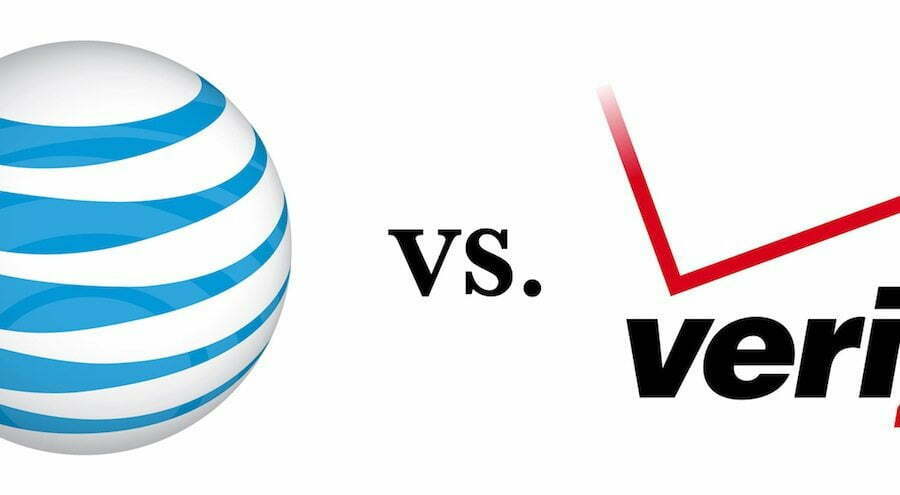

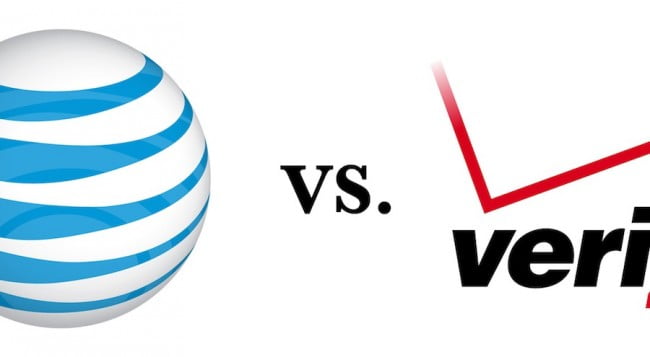












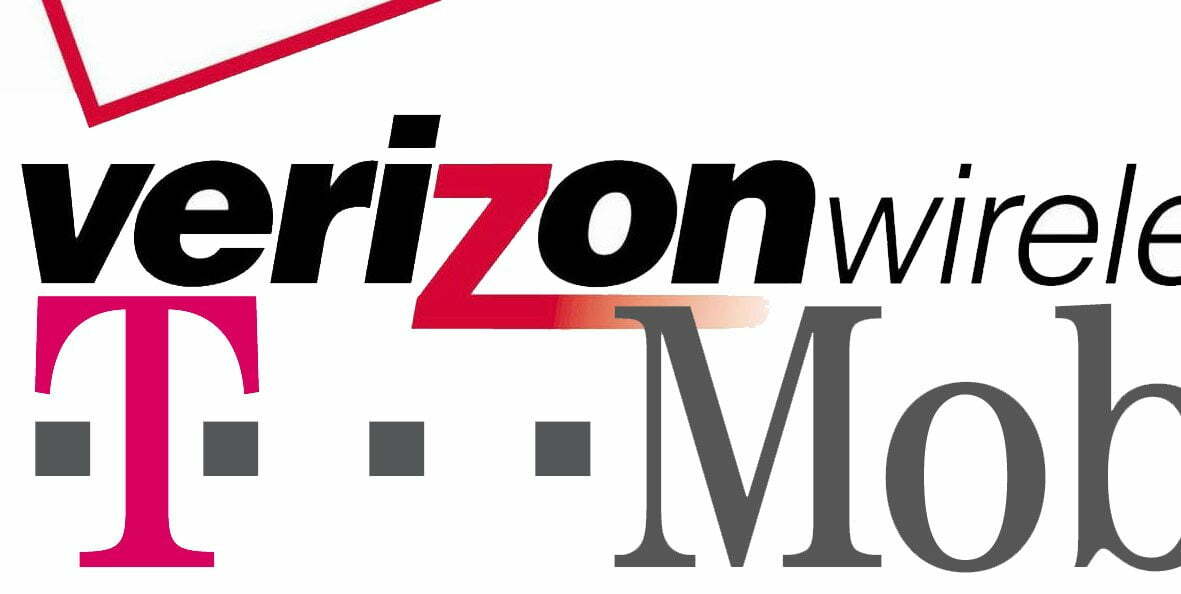
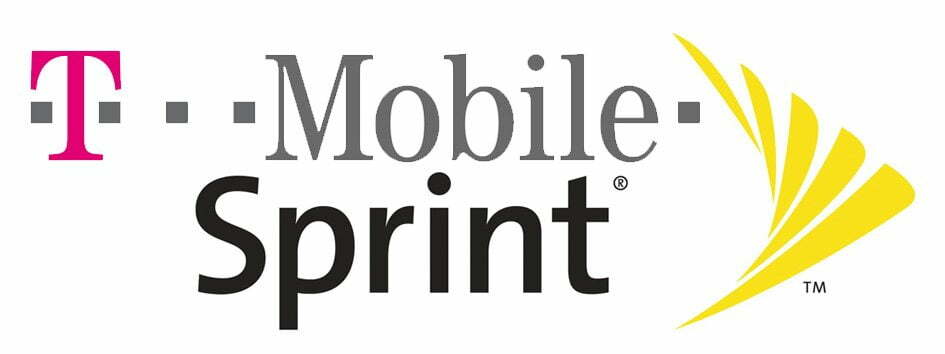
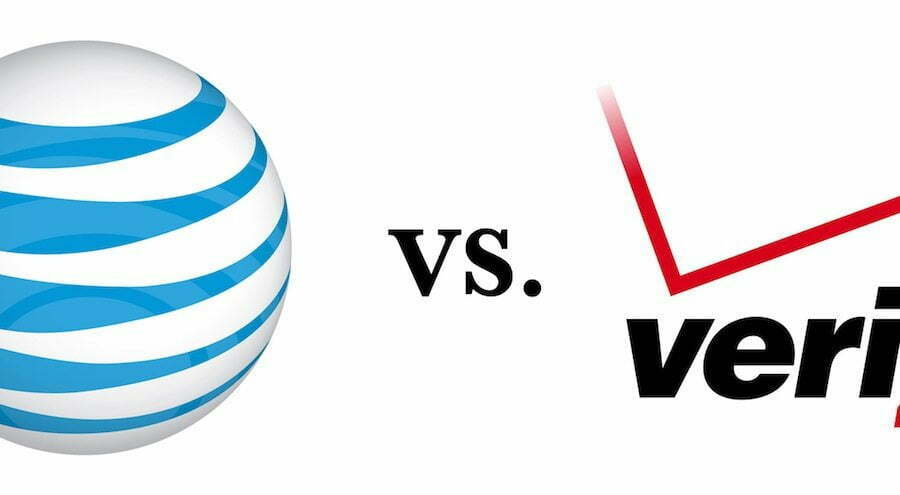
![Best Cell Phone Plans in [year] ([month] Reviews) 12 Best Cell Phone Plans in 2025 (April Reviews)](https://www.gadgetreview.dev/wp-content/uploads/verizon-reviews.png)
![Best Credit Cards with Cell Phone Insurance in [year] 13 Best Credit Cards with Cell Phone Insurance in 2025](https://www.gadgetreview.dev/wp-content/uploads/best-credit-cards-with-cell-phone-insurance-image-1.jpg)
![Best Smartphone in [year] ([month] Reviews) 14 Best Smartphone in 2025 (April Reviews)](https://www.gadgetreview.dev/wp-content/uploads/MagCase-Is-The-Worlds-Thinnest-Phone-Case-1.jpg)
![10 Best Large Screen Phones in [year] 15 10 Best Large Screen Phones in 2025](https://www.gadgetreview.dev/wp-content/uploads/best-large-screen-phone.jpg)
![10 Best Rugged Smartphones in [year] 16 10 Best Rugged Smartphones in 2025](https://www.gadgetreview.dev/wp-content/uploads/best-rugged-smartphone.jpg)
![10 Most Secure Phones in [year] 17 10 Most Secure Phones in 2025](https://www.gadgetreview.dev/wp-content/uploads/Most-Secure-Phone.jpg)
![10 Best Selfie Camera Phones in [year] 18 10 Best Selfie Camera Phones in 2025](https://www.gadgetreview.dev/wp-content/uploads/best-selfie-camera-phone.jpg)
![10 Best Dual SIM Phones in [year] 19 10 Best Dual SIM Phones in 2025](https://www.gadgetreview.dev/wp-content/uploads/best-dual-sim-phone.jpg)
![10 Best Small Phones in [year] 20 10 Best Small Phones in 2025](https://www.gadgetreview.dev/wp-content/uploads/best-small-phones.jpg)
![10 Best Low Light Camera Phones in [year] 21 10 Best Low Light Camera Phones in 2025](https://www.gadgetreview.dev/wp-content/uploads/best-low-light-camera-phone.jpeg)
